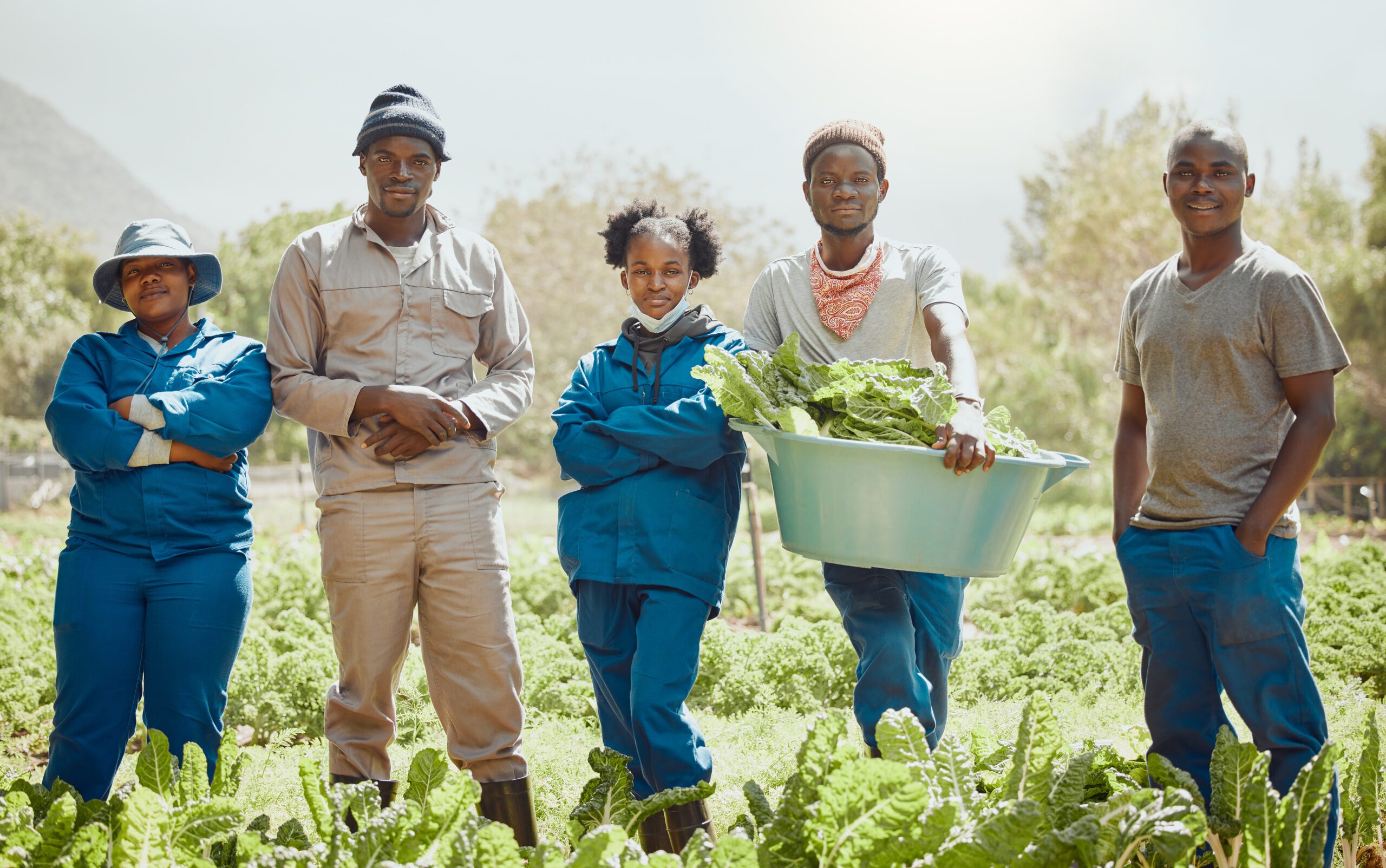Farm Fresh is a Gambian e-commerce platform that connects local farmers with consumers and offers...


Every year, roughly 11 million young Africans enter the labor force, but at best, only a quarter of these new workers will find paying jobs over the next decade (FAO 2018). According to the World Bank, by 2035, 350 million new jobs will be needed.
Many, if not most, of the more than 130 million young people in rural Sub-Saharan Africa are engaged in agriculture to a greater or lesser degree. This engagement takes many forms and is most often combined with other non-farm activities (IDS 2021).
Investing in youth and empowering young agri-entrepreneurs to invest responsibly in their farms and businesses are fundamental to achieving many Sustainable Development Goals. Youth are the future of food security for all, yet many young people do not see a future for themselves in agriculture due to the many barriers they face.
Agriculture is often perceived by youth as generating little profit, labor-intensive, and traditional. The higher unemployment rates among youth (particularly women), the poor quality of many jobs (informal, precarious working conditions, lack of legal and social protection), the mismatch between education and skills demand, and the limited opportunities for training and career progression explain the low interest in agriculture and migration to urban areas (ILO 2020). Lack of access to finance, limited use of improved inputs (i.e. seeds, fertilizers), and limited access to land are some of the constraints for value chain expansion. Rural youth are also likely to be worse off than the rest of the population in terms of all components of vulnerability to climate change.
Many young farmers and agri-entrepreneurs are innovators and risk-takers. They are increasingly involved in high-profit businesses related to marketing, processing, packaging, and food services, in addition to on-farm production. They are better informed, better connected, and willing to invest in capacity development. Young entrepreneurs are also more likely to hire fellow youths and pull even more young people out of unemployment and poverty. They are particularly responsive to new economic opportunities and trends and are active in high-growth sectors (Montpellier Panel Report 2014). Connectivity – to people, markets, services, ideas, and information – creates opportunities for rural youth to become more fully integrated with their transforming economies, which increases their productivity. For instance, rural areas that are better connected to markets through information flows and good transport infrastructure offer more opportunities for commercializing products and services (IFAD 2019).
Women entrepreneurs running small and medium-sized enterprises (SMEs) play a significant role in contributing to economic development by creating jobs, boosting economic growth, and harnessing the productive capacity of women.
Despite the key role women play in the agrifood sector, they face barriers in accessing productive resources, inputs, tools, equipment, and technologies, agricultural services and training, as well as finance.
On average, women spend 85–90 percent of their time each day on household, food preparation, childcare, and other household chores. Women’s triple work burden in the productive, reproductive, and social spheres limits their potential to take advantage of new opportunities (FAO 2014). Hence, rural women often find themselves in particularly vulnerable employment situations, given limited access to resources, infrastructure, and markets, as well as diversified sources of income (World Bank Group 2019).
When women control additional income, they spend more of it than men do on food, health, clothing, and education for their children. This has positive implications for immediate well-being as well as long-run human capital formation and economic growth. Therefore, closing the gender gap in agriculture would generate significant gains for the agriculture sector and for society at large.
Rural women increasingly run their own enterprises, yet their entrepreneurial potential remains largely unrecognized and untapped. Enabling gender-responsive policies, services, and business environments are crucial to stimulate the start-up and upgrading of women’s businesses and thereby help generate decent and productive work.
Join our Agrinnovators community forum to discuss and explore how to encourage innovations across agricultural value chains to transform food systems in Africa, promote sustainable agriculture, and leverage investment. Share insights, ask questions, and collaborate on innovative solutions for a greener future

Farm Fresh is a Gambian e-commerce platform that connects local farmers with consumers and offers...


On International Youth Day 2024, the PAFO and COLEAD launch a new initiative aimed at...
COLEAD and the PAFO celebrate African women agrifood entrepreneurs and their support to sustainable food systems.
Perisha Agro and Packing Enterprise is Malawi's leading company in producing biofortified and highly nutritious products made from local crops. They presented at Innovation Session n°12.
West African Feeds produces insect based agri-feeds & agri-nutrition products. They presented at Innovation Session n°11.
AGROTECH is a women's cooperative specialising in the producing, processing and marketing of agricultural products. They presented at Innovation Session n°13.
Food Care produces and packages traditional Angolan food products. They presented at Innovation Session n°12.
Viva Organica is a biofertiliser manufacturer, promoting natural farming inputs and techniques that do not harm the environment. They presented at Innovation Session n°11.
UPROMABIO is a union of Cooperative Societies of organic and fair trade mango producers in Burkina Faso. They presented at Innovation Session n°12.
Bio-Tropical Products Co. produces fresh and processed organic citrus products. The company presented at Innovation Session n°12.
Jedengui processes and produces Guinean dried fruits. They presented at Innovation Session n°11.